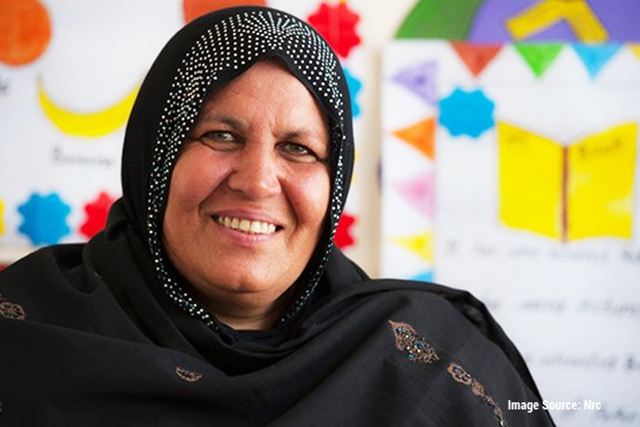ISLAMABAD - An Afghan refugee teacher in Pakistan along with two Pakistani female teachers have been shortlisted for the Global Teacher Prize 2016.
The Global Teacher Prize is a one million dollar award that is given to an exceptional teacher who has made an outstanding contribution to the profession.
The Varkey Foundation launched the Global Teacher Prize in 2014 to raise the stature of the teaching profession. Only those teachers are shortlisted who inspire their students and community around them.
There were over 5,000 nominations and applications from 127 countries for the inaugural year of the Global Teacher Prize which generated a huge amount of media interest around the world.
At the Global Education and Skills Forum 2015, USA educator Nancie Atwell was announced as the winner from the Top 10 outstanding finalists.
Aqeela Asifi (Girls refugee schools Pakistan), Neelofar Ali (the Rupani Foundation Pakistan) and Humaira Bachal (Dream Foundation Trust Pakistan) have been short-listed for prize.
Neelofar is an early childhood educator who currently works for the Rupani Foundation Pakistan. She set up the first Montessori school in Gilgit Baltistan, Pakistan, and thus introduced its Early Childhood Development model and stimulating teaching style to the region. In collaboration with Plan International she went on to establish 34 ECD centers and train 98 caregivers in the Thatta District, providing support for marginalized children in villages.
In contrast to traditional approaches where the child is a passive listener, the ECD centres follow a hybrid approach that aligns the Montessori and high scope methods with the objectives of the national curriculum. They acquaint educators with new learning styles, classroom management and teaching methodologies that engage the student and use all five senses.
When she was 10 years old, she was shocked when her infant cousin died because the child's illiterate mother had not been able to read the expiry date on his fever medicine. This is what spurred her to a mission of literacy for girls. At the age of 12, still a student herself, she started classes for impoverished children in her neighbourhood. At that time she and her little sisterhad to knock on doors and convince parents of the benefits of education. Today, a decade later, there are 1,200 students enrolled at their Dream Model Street School on the outskirts of Karachi.
Instead of the passive rote approach that is standard in government schools in Pakistan, Humaira applies interactive teaching methods. Her students learn through discovery, research and inquiry, use everyday items to visualise mathematical concepts, and visit companies and farms in the vicinity. She has also introduced e-learning in the primary and secondary classes.
Her innovative practices and teaching philosophy earned the Dream Model Street School the runner-up place for Pakistan in the Education For All category of the World Summit Youth Award in 2011.
During her time at the camp, Aqeela completely changed the face of education for young girls. When she arrived, she was shocked to find that there were no operational schools in this very conservative area. Educating girls was even considered wrong and female teachers were unheard of. Aqeela set up a school for girls in a borrowed tent and worked hard to overcome parents' reluctance towards education. Initially twenty families agreed, once she had put the focus of her teaching on the non-controversial subjects of personal hygiene, home management skills and religious education for girls. Having gained the trust of the community, she then introduced subjects like literacy, Dari language, mathematics, geography and history.
Over time she turned her school into a formal secondary school for girls which produced 1,000 graduates. They were mainly Afghan refugee girls, but Aqeela made sure that local Pakistani children were included as well. Several of her students have gone on to become doctors, engineers, government officials and even teachers in Afghanistan.
Today there are nine schools in the camp with many female teachers and over 1,500 students, 900 of which are girls. Due to the higher level of education, the occurrence of early and forced marriages has declined in the community. For her efforts to give girl refugees access to education, Aqeela was recently honoured by the UNHCR with the Nansen Refugee Award. (Tolonews)

